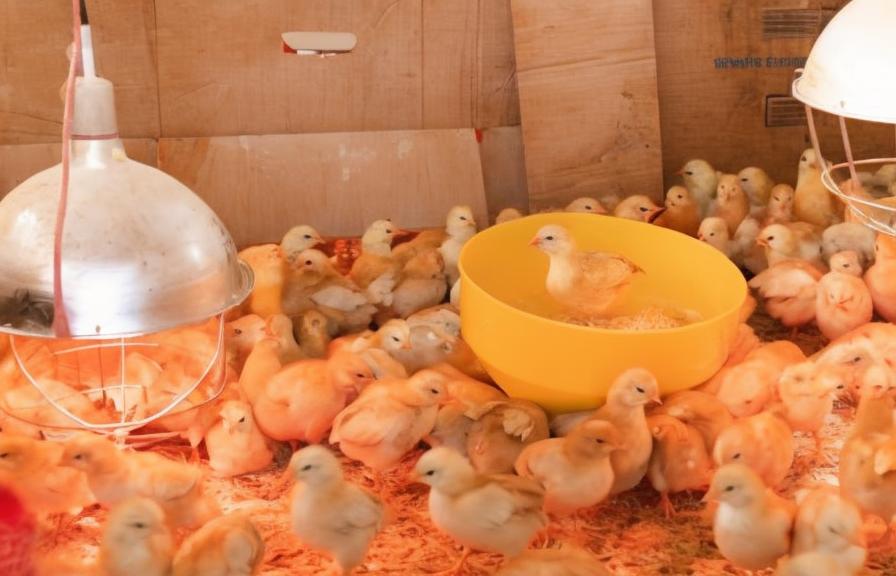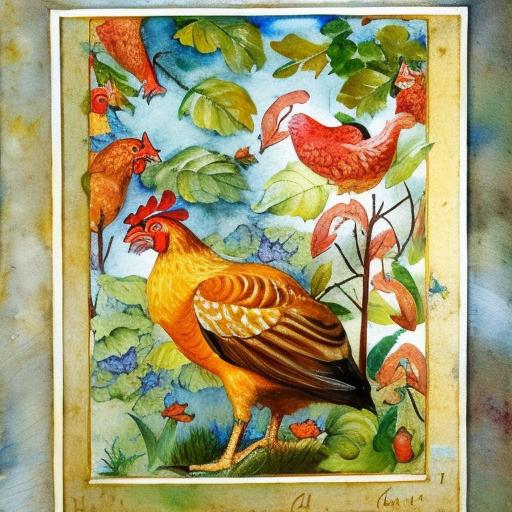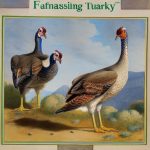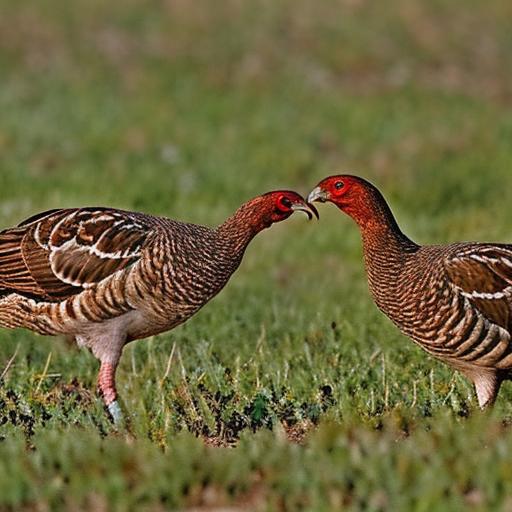Turkey and chicken farming are two of the most popular poultry farming practices around the world. Both turkeys and chickens are raised for their meat and eggs, and they come in a variety of breeds, each with its own unique characteristics. Turkeys are larger birds, known for their distinctive fan-shaped tails and wattled necks. They are primarily raised for their meat, which is a popular choice for holiday feasts. Chickens, on the other hand, are smaller birds that come in a wide range of breeds, each with its own unique egg-laying and meat-producing capabilities.
There are many different breeds of turkeys and chickens, each with its own unique traits and characteristics. Some popular turkey breeds include the Broad Breasted White, Bronze, and Narragansett, while popular chicken breeds include the Rhode Island Red, Leghorn, and Plymouth Rock. Each breed has its own specific requirements for housing, feeding, and management, so it’s important to carefully consider the needs of each breed when mixing turkeys and chickens in a flock.
Key Takeaways
- Turkey and chicken breeds have different characteristics and requirements, making it important to understand their differences before mixing them.
- Genetic compatibility between turkeys and chickens can result in hybrid vigor, but it’s important to consider the potential impact on breed purity.
- Behavioral compatibility is crucial when mixing turkeys and chickens to prevent aggression and stress within the flock.
- Health considerations such as disease resistance and susceptibility should be taken into account when mixing turkey and chicken breeds.
- Proper housing and management practices are essential for maintaining a mixed flock of turkeys and chickens, including providing adequate space and separate feeding areas.
- Mixing turkey and chicken breeds can potentially result in improved foraging abilities, predator protection, and overall flock resilience.
- When considering mixing turkey and chicken breeds, it’s important to carefully weigh the potential benefits and challenges to ensure the well-being of both species.
Genetic Compatibility of Turkeys and Chickens
When considering mixing turkey and chicken breeds in a flock, it’s important to consider the genetic compatibility of the two species. While turkeys and chickens are both poultry, they are genetically distinct from one another, and there are some important considerations to keep in mind when mixing the two species. One important consideration is the potential for hybridization between turkeys and chickens. While it is possible for turkeys and chickens to interbreed, the resulting offspring may not be viable or may have health issues. Therefore, it’s important to keep turkeys and chickens separate if you want to maintain the purity of each breed.
Another consideration is the potential for disease transmission between turkeys and chickens. While turkeys and chickens can coexist in the same environment, they are susceptible to different diseases, some of which can be transmitted between the two species. It’s important to carefully manage the health of both turkey and chicken flocks to prevent the spread of disease between the two species. Additionally, it’s important to consider the potential for aggression between turkeys and chickens. Turkeys are larger and more aggressive birds than chickens, so it’s important to provide enough space for both species to avoid potential conflicts.
Behavioral Compatibility of Turkeys and Chickens
In addition to genetic compatibility, it’s important to consider the behavioral compatibility of turkeys and chickens when mixing the two species in a flock. Turkeys and chickens have different social structures and behaviors, so it’s important to carefully manage their interactions to prevent potential conflicts. Turkeys are more territorial and aggressive than chickens, so it’s important to provide enough space for both species to establish their own territories within the flock.
It’s also important to consider the social dynamics of both turkey and chicken flocks when mixing the two species. Turkeys have a hierarchical social structure, with dominant birds establishing themselves as leaders of the flock. Chickens also have a social hierarchy, but it may be different from that of turkeys. When mixing turkeys and chickens in a flock, it’s important to carefully manage their interactions to prevent potential conflicts between dominant birds of each species. Providing enough space, food, and resources for both turkeys and chickens can help minimize potential conflicts and promote a harmonious coexistence within the mixed flock.
Health Considerations when Mixing Turkey and Chicken Breeds
When mixing turkey and chicken breeds in a flock, it’s important to carefully manage the health of both species to prevent the spread of disease and ensure the overall well-being of the flock. Turkeys and chickens are susceptible to different diseases, some of which can be transmitted between the two species. It’s important to implement biosecurity measures to prevent disease transmission between turkeys and chickens, such as keeping separate housing areas for each species, providing separate feeders and waterers, and practicing good hygiene and sanitation practices.
In addition to disease management, it’s important to consider the nutritional needs of both turkey and chicken breeds when mixing the two species in a flock. Turkeys have different dietary requirements than chickens, so it’s important to provide a balanced diet that meets the nutritional needs of both species. Providing separate feeders for turkeys and chickens can help ensure that each species receives the appropriate nutrition without competition from the other species.
Housing and Management of Mixed Turkey and Chicken Flocks
When mixing turkey and chicken breeds in a flock, it’s important to carefully consider the housing and management needs of both species to ensure their overall well-being. Turkeys and chickens have different housing requirements, so it’s important to provide separate housing areas for each species within the mixed flock. Turkeys require more space than chickens due to their larger size and more aggressive nature, so it’s important to provide enough space for both species to establish their own territories within the flock.
In addition to housing considerations, it’s important to carefully manage the feeding and watering needs of both turkey and chicken breeds within the mixed flock. Providing separate feeders and waterers for turkeys and chickens can help prevent competition between the two species and ensure that each species receives the appropriate nutrition without interference from the other species. It’s also important to carefully manage the social dynamics of the mixed flock to prevent potential conflicts between turkeys and chickens.
Potential Benefits of Mixing Turkey and Chicken Breeds

While there are some important considerations to keep in mind when mixing turkey and chicken breeds in a flock, there are also potential benefits to be gained from raising both species together. One potential benefit is pest control. Turkeys are known for their insect-eating abilities, so raising them alongside chickens can help control pests in the flock’s environment. Additionally, turkeys and chickens have different foraging behaviors, so raising them together can help maximize the use of available pasture or range land.
Another potential benefit is increased diversity within the flock. Raising both turkey and chicken breeds together can add diversity to the flock, which can be beneficial for overall flock health and resilience. Additionally, raising both species together can provide a more diverse product offering for consumers, as both turkey meat and chicken meat are popular choices for consumers.
Considerations for Mixing Turkey and Chicken Breeds
In conclusion, mixing turkey and chicken breeds in a flock can be a rewarding practice, but it’s important to carefully consider the genetic compatibility, behavioral compatibility, health considerations, housing and management needs, and potential benefits of raising both species together. By carefully managing these considerations, poultry farmers can successfully raise mixed flocks of turkeys and chickens while promoting overall flock health and well-being. With careful planning and management, raising mixed flocks of turkeys and chickens can be a successful practice that provides benefits for both farmers and consumers alike.
If you’re considering raising both turkeys and chickens, it’s important to understand the compatibility of different poultry breeds. According to a recent article on PoultryWizard, “Can a Turkey Mix with Chicken Breeds,” it’s essential to consider the potential challenges and benefits of keeping these birds together. Understanding the dynamics between turkey and chicken breeds can help you make informed decisions about your poultry flock. For more insights on poultry care and management, check out PoultryWizard’s articles on how many chickens you need for a family of 4, choosing the right floor for your chicken coop, and selecting a heater for your chicken coop.
FAQs
What is the difference between turkeys and chickens?
Turkeys and chickens are both domesticated birds, but they belong to different species. Turkeys are part of the genus Meleagris, while chickens are part of the genus Gallus. They have different physical characteristics, behaviors, and nutritional needs.
Can turkeys and chickens be kept together?
It is generally not recommended to keep turkeys and chickens together. Turkeys are susceptible to a disease called blackhead, which is caused by a parasite that chickens can carry without showing symptoms. Additionally, turkeys and chickens have different social structures and communication styles, which can lead to conflicts when they are kept together.
Can turkeys and chickens mate and produce offspring?
While turkeys and chickens are capable of mating, they are not able to produce viable offspring. This is due to genetic incompatibilities between the two species. Any eggs produced from a mating between a turkey and a chicken would not be able to develop into healthy embryos.
Are there any benefits to keeping turkeys and chickens together?
Some people may choose to keep turkeys and chickens together for practical reasons, such as saving space or simplifying their management routines. However, it is important to be aware of the potential risks and challenges associated with mixing these two species. It is generally recommended to keep turkeys and chickens separate to ensure the health and well-being of both species.
Meet Walter, the feathered-friend fanatic of Florida! Nestled in the sunshine state, Walter struts through life with his feathered companions, clucking his way to happiness. With a coop that’s fancier than a five-star hotel, he’s the Don Juan of the chicken world. When he’s not teaching his hens to do the cha-cha, you’ll find him in a heated debate with his prized rooster, Sir Clucks-a-Lot. Walter’s poultry passion is no yolk; he’s the sunny-side-up guy you never knew you needed in your flock of friends!







